Are you dealing with acne scars in Hartford, New Haven, Norwalk, Greenwich, and Avon? If you are looking to remove your acne scars, Dr. Stanislaw can treat acne scars with microdermabrasion, chemical peels, collagen induction therapy, injectable fillers, pulsed dye laser treatments, laser resurfacing, dermabrasion, or surgical excision.
Quick Links
TREATING ACNE SCARS
The method used to improve acne scars depends on the specific types of acne scars. During your consultation, Dr. Stanislaw will evaluate your acne scars and determine which acne scar treatment is best suited for your skin type. First, your acne must be controlled before treating acne scars. Second, acne scar treatments always have degrees of improvement. There will always be permanent scars, but Dr. Stanislaw’s job is to diminish acne scarring and make it as least noticeable as possible.
TYPES OF ACNE SCARS
Various types of acne scars can form depending on the specific acne lesions. The scars must be broken down into their main features to determine the most appropriate acne scar treatment. Below are various features and their safe and effective treatment options.
1. COLOR
Acne scars can be hyperpigmented or hypopigmented. They are typically red, brown, or white in color (sometimes based on skin tone). Pigmentation can determine the path of your acne scar treatments– severe acne scars may leave more visible pigmentation.
- Red: makeup, pulsed dye laser treatments
- Darker (Brown): makeup, prescription bleaching agents, chemical peel, IPL, laser treatments
- White: makeup, lightening the skin around the scar, surgical excision
2. TEXTURE
Acne scars can be shiny in texture, resembling stretch marks or missing pores. In this case, collagen induction therapy or surgical excision is the best, most effective treatment for acne scars.
3. RAISED SCARS (HYPERTROPHIC SCARS)
A raised scar can create an unfavorable skin texture. Treatment for acne scarring can depend on how much the scar is raised. Microdermabrasion, dermabrasion, fractional laser therapy, laser resurfacing, surgical excision, and steroid injections to flatten raised scars are often the best acne scar treatments.
4. DEPRESSED OR SUNKEN ACNE SCARS (ATROPHIC FACIAL ACNE SCARS)
Sometimes called atrophic acne scars, icepick scars, or boxcar acne scars, depressed scars are often very deep. They are best treated using collagen induction therapy (microneedling), chemical peels, and laser resurfacing. The most common treatment for atrophic scars is soft tissue fillers (dermal fillers) injected into each depressed scar to fill the surrounding skin. Another option is surgical excision. If the atrophic scar is deep, surgical subcision or surgical excision are the best options.
Dr. Stanislaw is skilled and experienced in treating mild acne scarring, depressed acne scars, and more. Please contact Stanislaw Facial Plastic Surgery Center to learn more and schedule an acne scar consultation.

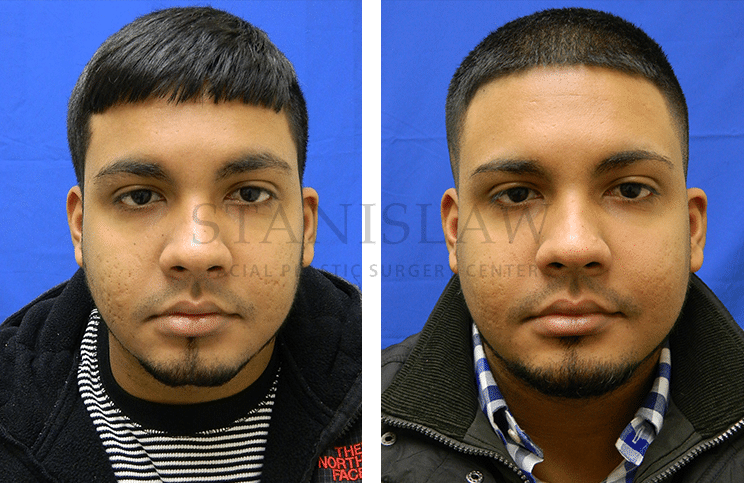
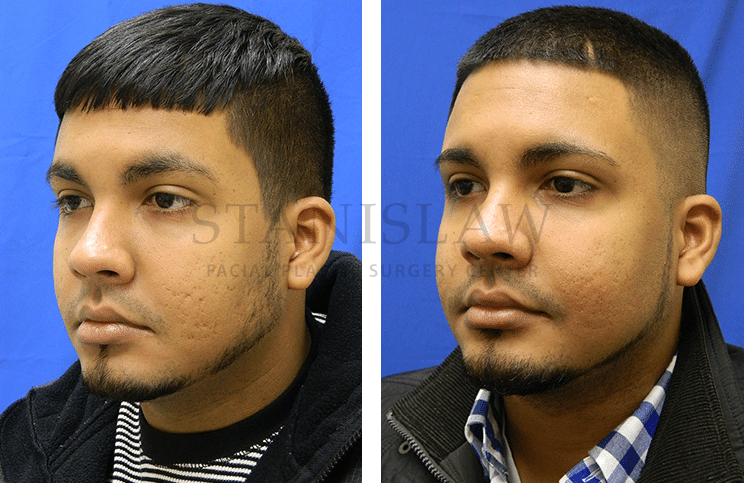
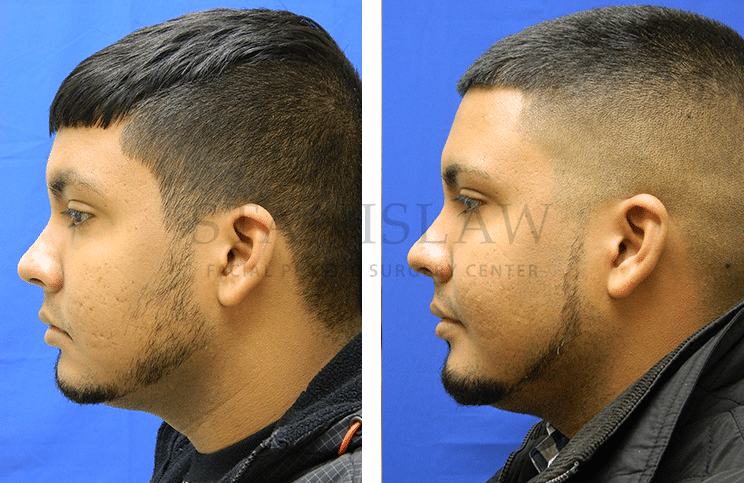
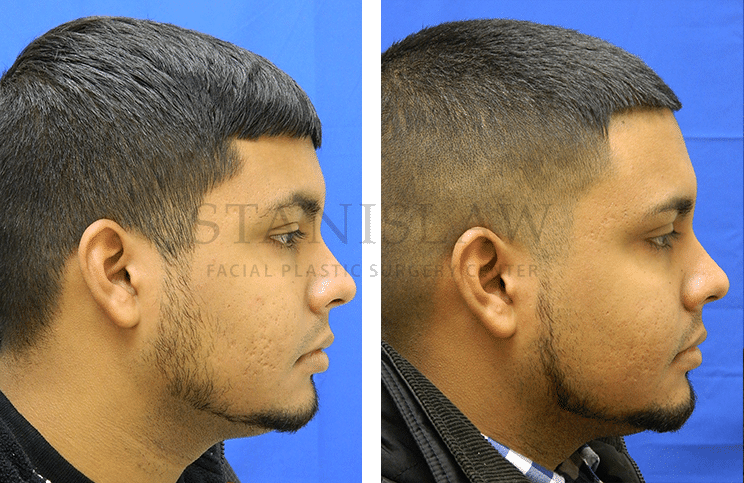
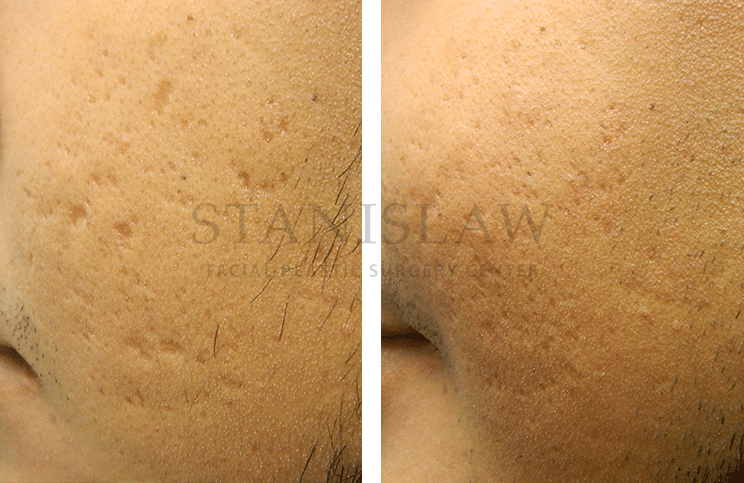
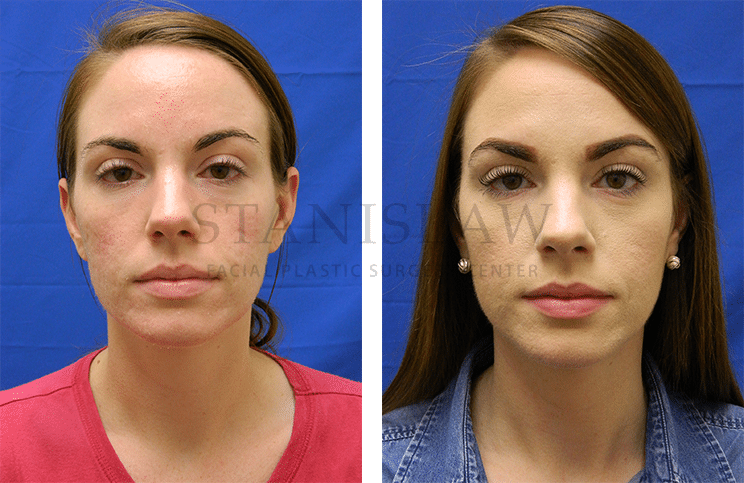
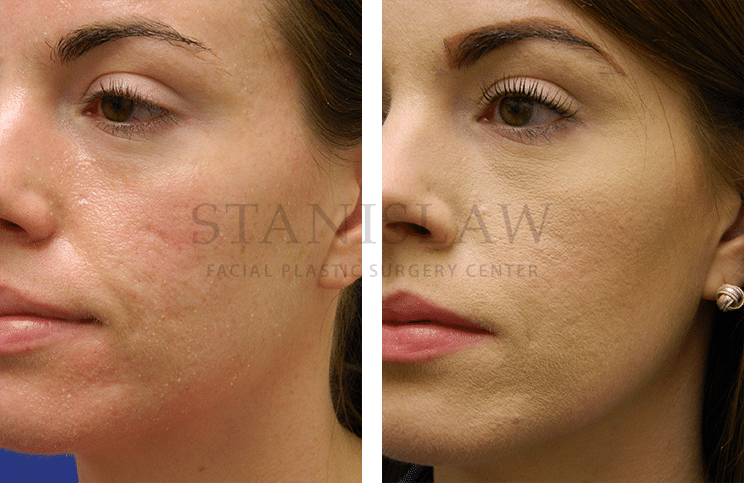
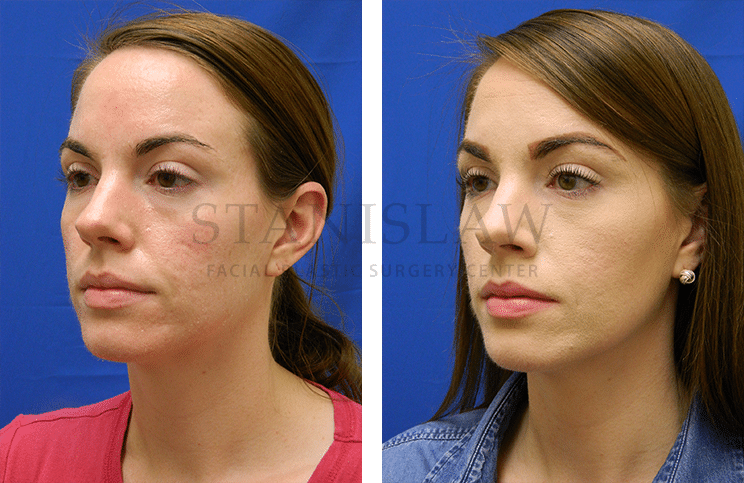
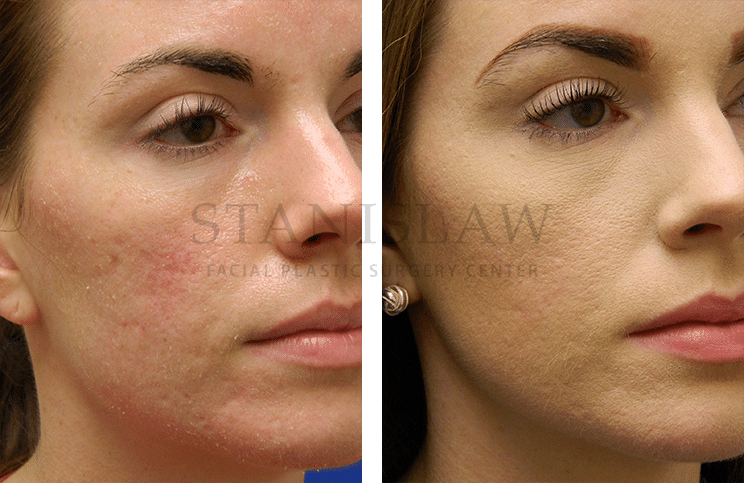
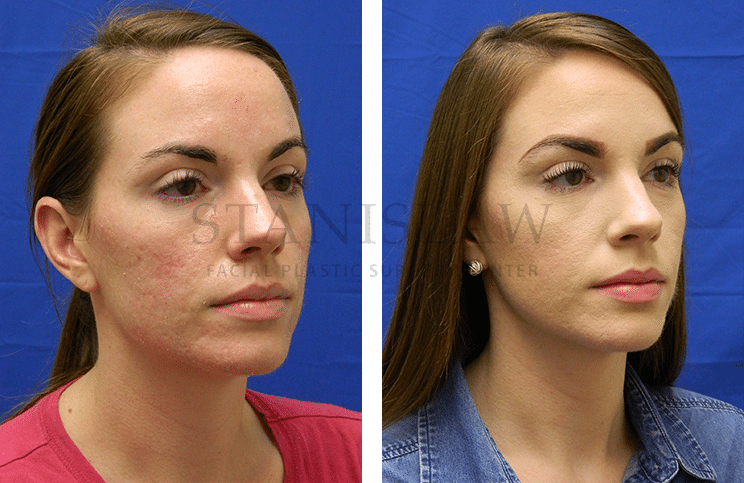
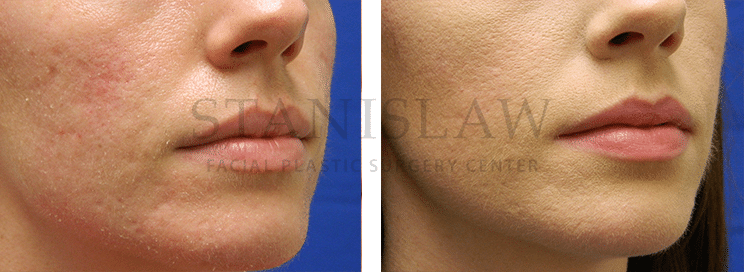
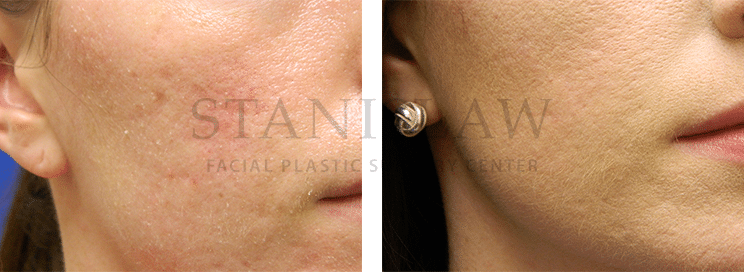
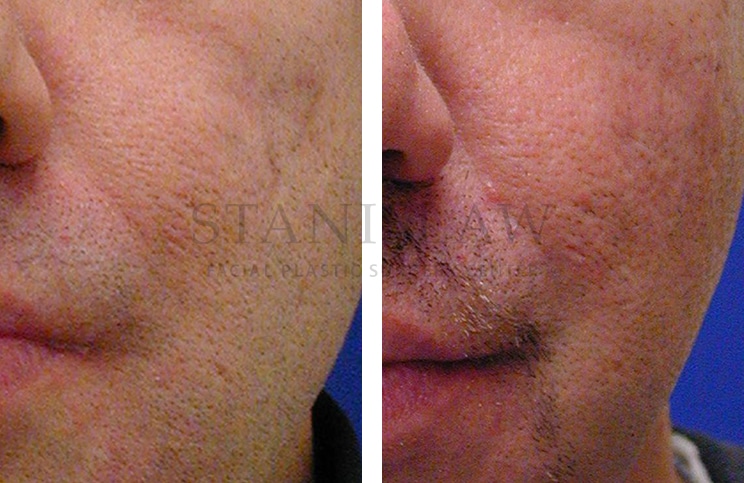
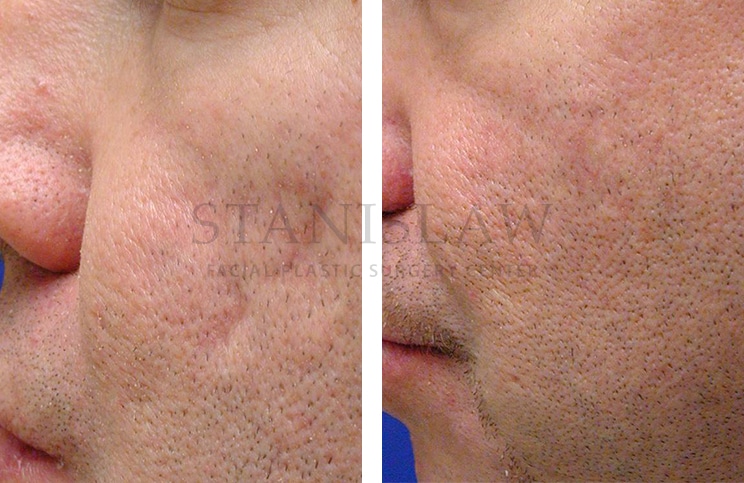
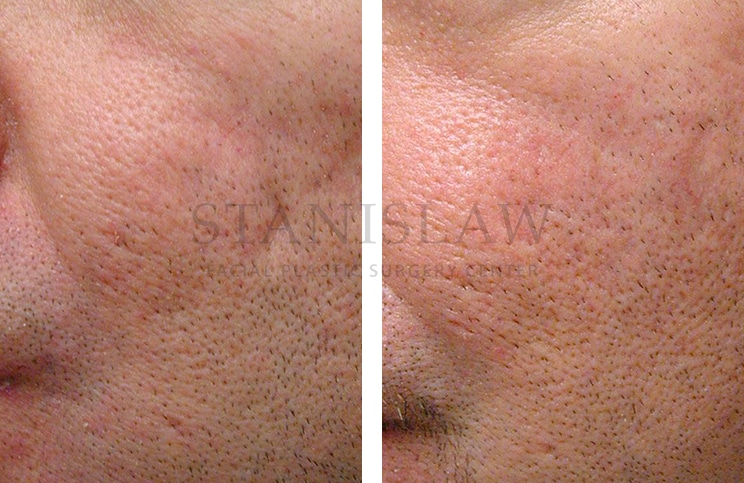
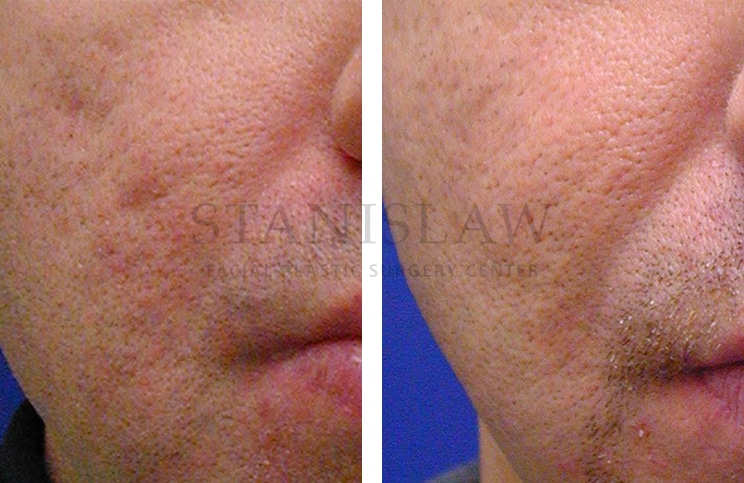
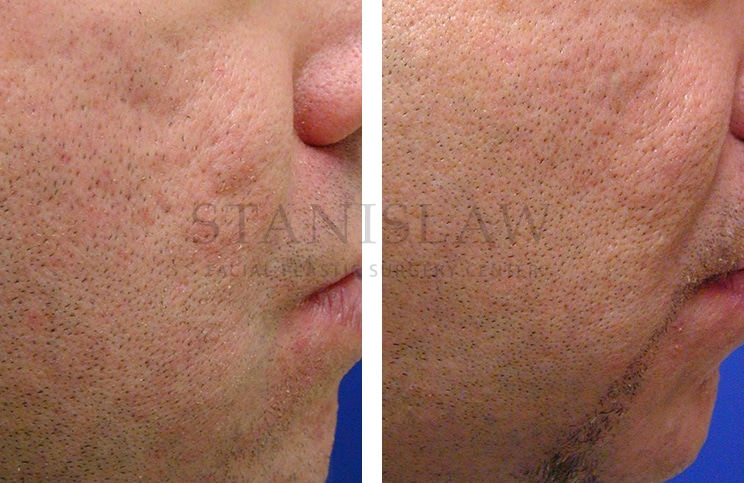
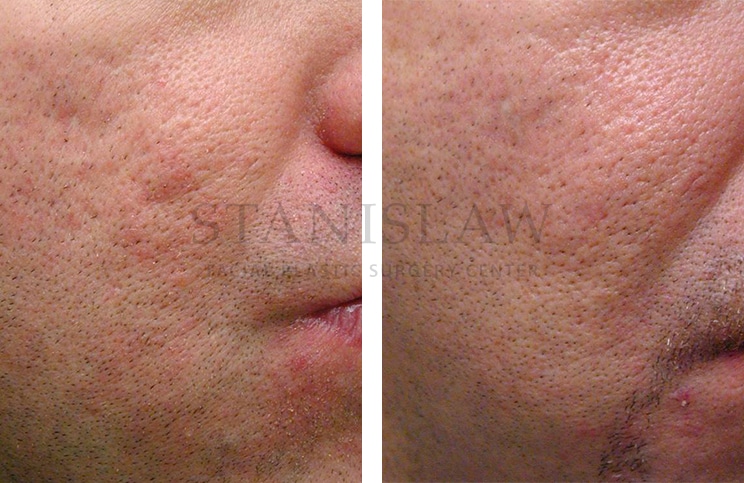
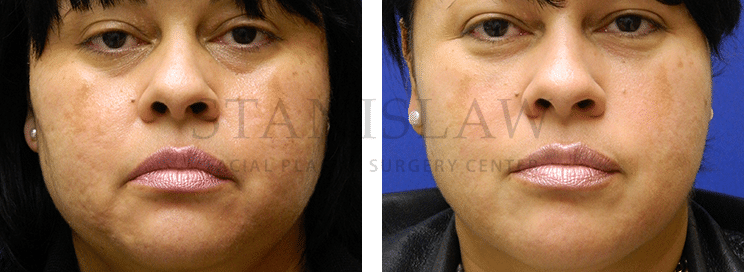
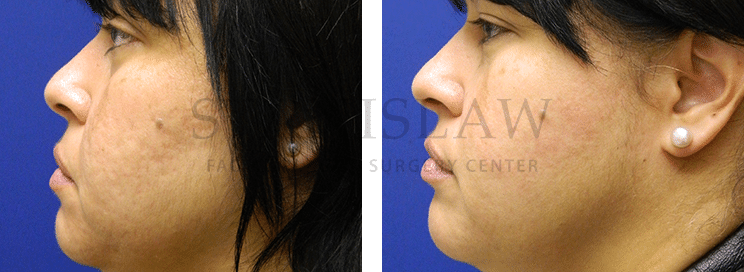
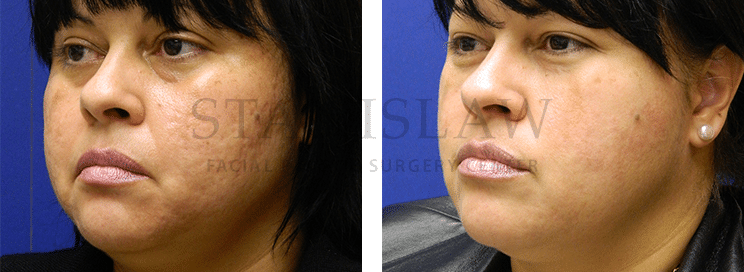
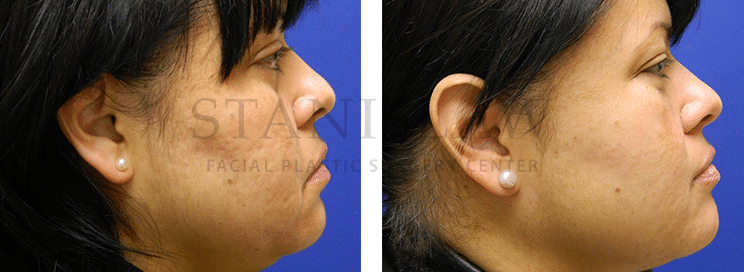
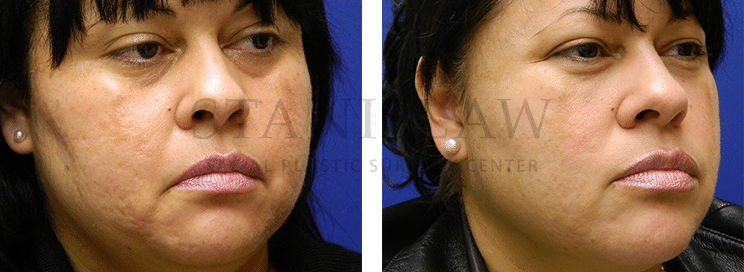
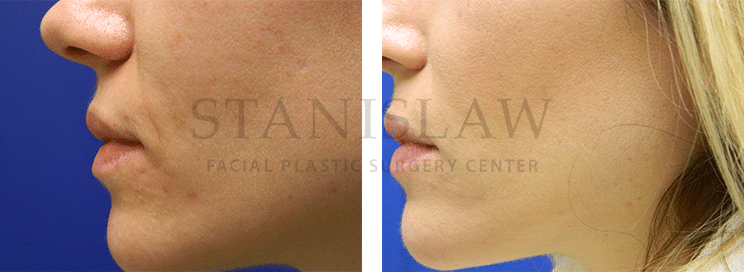
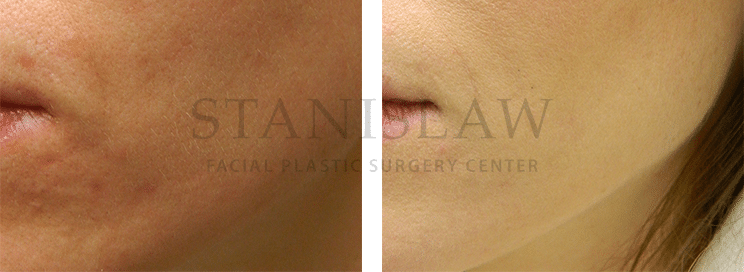
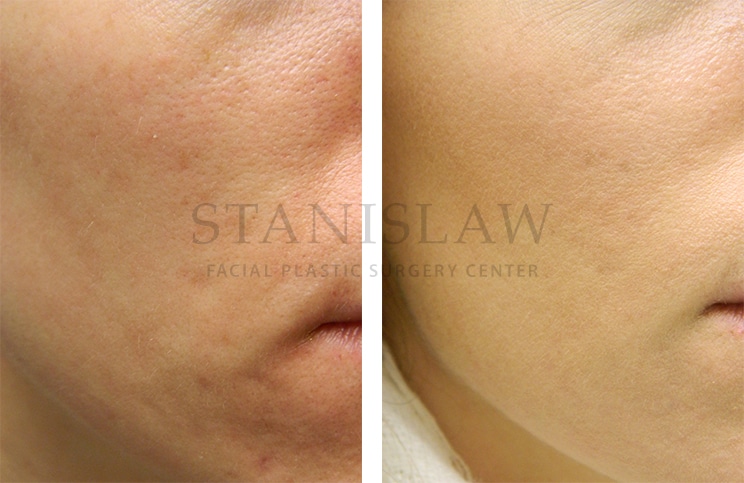
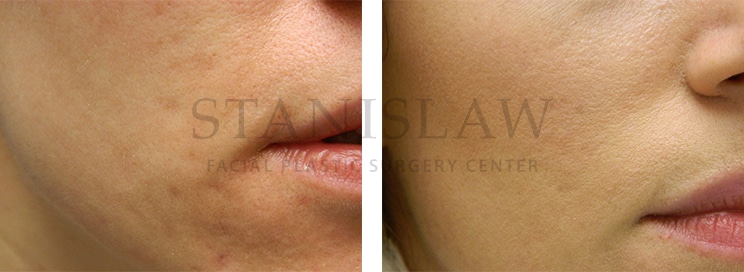
 REVIEWS
REVIEWS